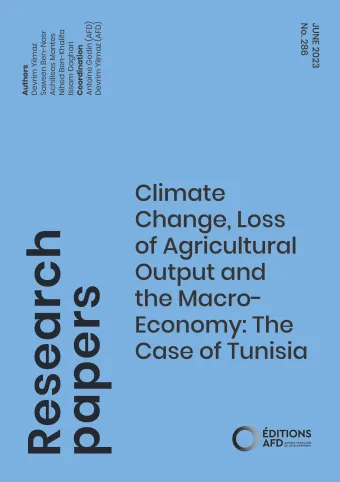Share the page
Climate Change, Loss of Agricultural Output and the Macro-Economy: The Case of Tunisia
Published on

Using an empirical, multi-sectoral, open economy, Stock-Flow Consistent model, this paper assesses the long-term consequences of a sustained climate-induced decline in agricultural production for the Tunisian economy. Focus is placed on agricultural and processed food production and the feedback loops of balance sheet and liquidity effects on the real economy. The model is empirically calibrated using a range of national accounts, input-output, balance of payments and balance sheet datasets, agricultural projections from crop models and it is simulated for the period 2018- 2050. We show that costs of inaction in the face of declining agricultural production are dire for Tunisia. We find that the economy will face high and rising unemployment and inflation, growing internal and external macroeconomic imbalances and a looming balance of payments crisis, especially if global food inflation remains high in the coming decades. We then simulate two possible adaptation scenarios envisaged by policymakers and show that adaptation investments in water resources, increased water efficiency in production and a public, investmentdriven big push, can put the economy back on a sustainable path in the long run.
Useful Information
-
Authors
-
Devrim YILMAZ, Sawsen BEN-NASR, Achilleas MANTES, Nihed BEN-KHALIFA, Issam DAGHARI
-
Coordinators
-
Devrim YILMAZ, Antoine GODIN
-
Edition
-
286
-
Number of pages
-
106
-
ISSN
-
2492 - 2846
-
Collection
-
Research Papers
